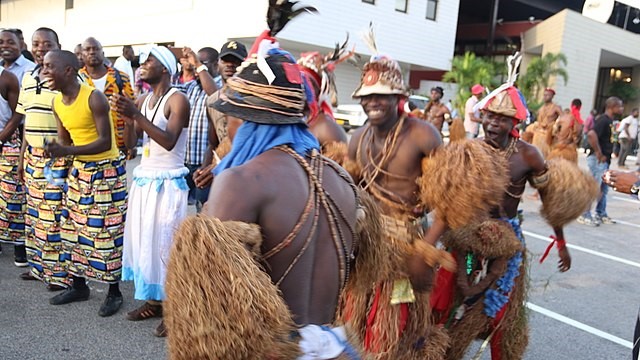In Gabon, the rhythms of drums and the movements of dancers are more than artistic expression; they are the living threads of a culture deeply rooted in ritual and tradition. Across villages and cities alike, ceremonies infused with music and movement articulate a shared history, binding communities to one another and to their ancestors.
Traditional dances occupy a central place in major life events. Births, initiations, marriages, and funerals are all marked with performances that transcend entertainment. Among the Fang people, Bwiti ceremonies exemplify this fusion of art and spirituality. Participants move in intricate patterns while accompanied by hypnotic rhythms, their gestures carrying layered meanings—stories of creation, ancestral wisdom, and the passage between life stages. For those who take part, the dances are a form of collective memory, a ritual affirmation of identity.
Equally significant are the communal aspects of these performances. Whether staged at small gatherings or during large-scale festivals, the dances invite participation. Entire communities converge around the sound of drums, the sway of movement, the repetition of chants. In such spaces, hierarchy blurs; what emerges instead is a sense of belonging, reinforced by the shared act of rhythm and ritual.
Ritual ceremonies further deepen this connection. The Nganga ceremony, for example, brings together song, dance, and medicinal plants in rites that link participants with the spiritual world. Within such practices lies a worldview in which healing, memory, and ancestry remain intertwined. The costumes—often elaborate and symbolic—together with the choreography offer tangible reminders of how deeply history and belief are inscribed into Gabonese cultural life.
These traditions are not static. In contemporary Libreville, young performers blend hip-hop beats with traditional steps, creating hybrid forms that both honor and reinterpret their heritage. Such adaptations reflect a cultural resilience: Gabonese identity does not erode under the influence of modernity but absorbs and reshapes it. The result is a dialogue between past and present, one that ensures rituals remain relevant to new generations.
The persistence of dance and ritual underscores their importance to Gabonese society. Each performance, whether in a rural clearing or an urban stage, functions as an affirmation of collective values and a transmission of cultural memory. Far from being vestiges of the past, these practices are living, evolving testaments to identity—a choreography of continuity and change.
Sources
- Fernandez, James W. Bwiti: An Ethnography of the Religious Imagination in Africa. Princeton University Press, 1982.
- Gray, John. African Music: A Bibliographical Guide. Routledge, 1991.
- Mary, André. La Naissance à l’envers: Essai sur le rituel du Bwiti fang au Gabon. CNRS Éditions, 1983.


